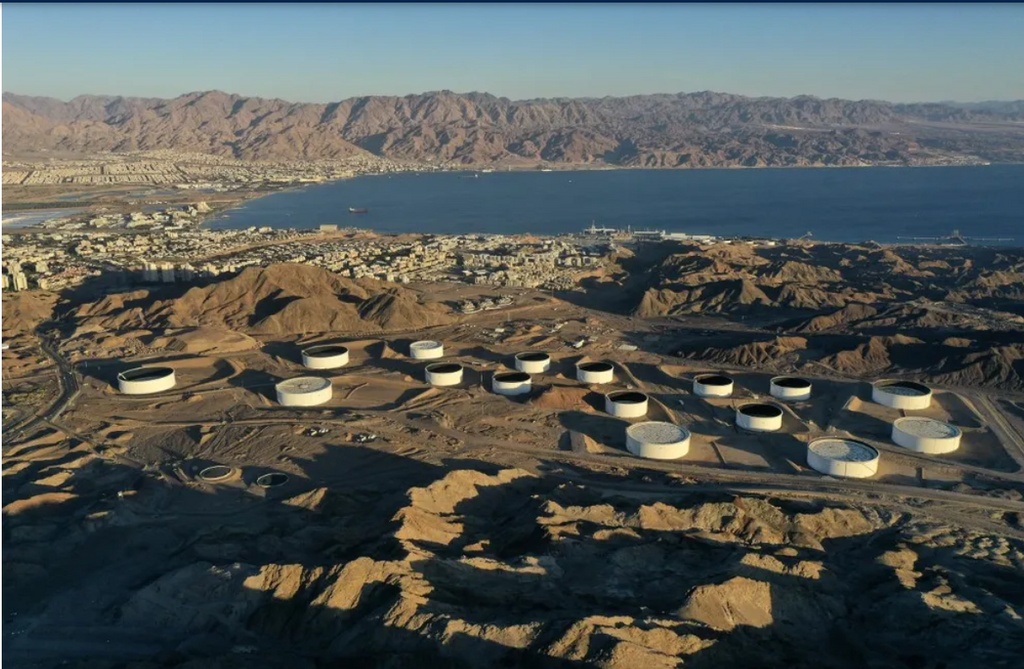Getting your Trinity Audio player ready...
A senior United Arab Emirates official said Thursday the cancellation of an oil pipeline deal between Israeli and Emirati companies will not harm the ties between the two countries despite speculations suggesting otherwise.
The Emirati official from the UAE embassy in Israel conveyed to Ynet’s sister publication Yedioth Ahronoth the possible cancelation won't harm the Abraham Accords, and the UAE sees this as only a commercial deal in the private sector.
2 View gallery


Oil storage containers of the Eilat Ashkelon Pipeline Company (EAPC) in the mountains near Israel's Red Sea port city of Eilat
(Photo: AFP)
The oil deal, involving Israel's state-owned Europe-Asia Pipeline Company (EAPC) and an Israeli-Emirati company called MED-RED Land Bridge Ltd was signed in October 2020. The agreement would have seen Gulf oil brought to the Red Sea port of Eilat by tanker, then moved by pipeline through mainland Israel to the Mediterranean port of Ashkelon, from where it would be shipped to Europe.
After the signing of the deal, Israeli environmental groups have asked the country’s Supreme Court to halt the implementation of the agreement, citing EAPC’s questionable safety record and the risk posed by massive oil tankers entering Eilat’s fragile coral ecosystems.
The Municipality of Eilat together with all of the city's tourism agencies also expressed strong opposition to the agreement. Their concern was that the pollution of the water as a result of a potential oil spill would seriously harm tourism, which is the main source of income for the city.
In response, EAPC claimed the cancelation of the oil deal would ruin the relations between the two countries. "The Abraham Accords and the economic trade relations in the energy sector that will be developed as a result of the agreement are a breakthrough that would weaken the Arab embargo on Israel in general and in the fuel sector in particular."
2 View gallery


Prime Minister Bennett, Bahrain's foreign minister to the left, and the UAE minister for state affairs on the right
(Photo: Avi Ohayon)
But before the Supreme Court could even rule on whether to officially scrap the deal, the UAE official rushed to calm the waters, saying, "We are looking forward to a new era of renewable energy, and our government sees this agreement as a private sector deal only."
In response, the Society for the Protection of Nature in Israel said: "This is further proof that the agreement - which is bad from a social, economic, ecological and environmental point of view - should be terminated as soon as possible. We call on Prime Minister Naftali Bennett and Foreign Minister Yair Lapid to do so. It's in their hands."

